
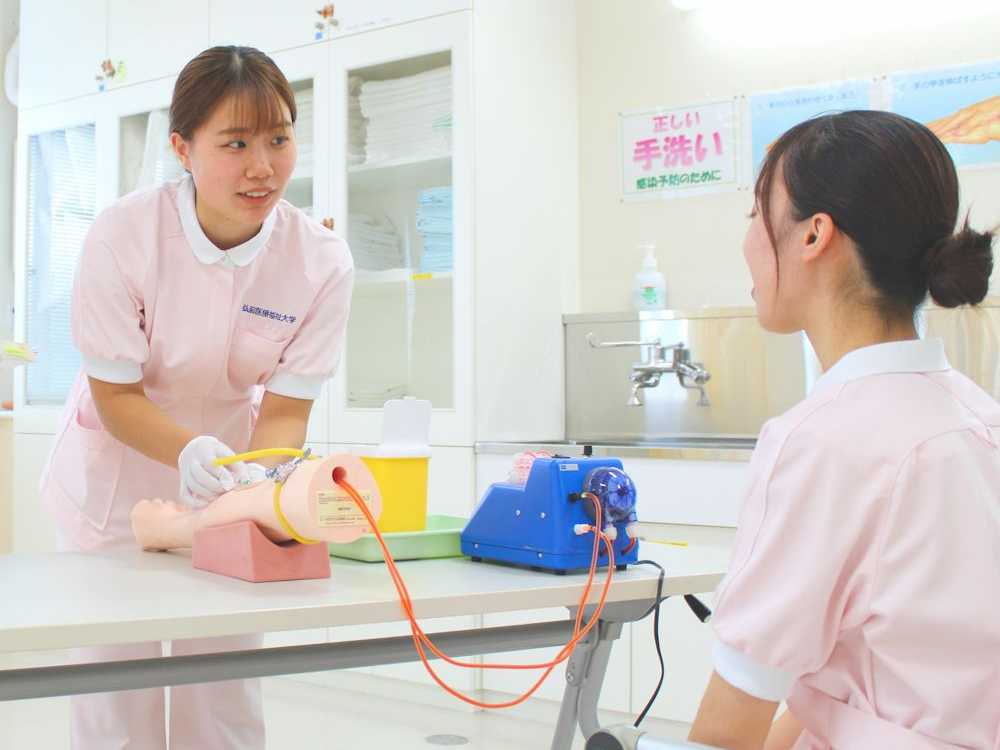
The Department of Nursing aims to develop skills to improve all people’s health and quality of life through scientific knowledge and techniques. Additionally, we strive for nursing students to be capable of collaborating with health, medical, and welfare professionals to enable an approach that takes into consideration the characteristics of the community.
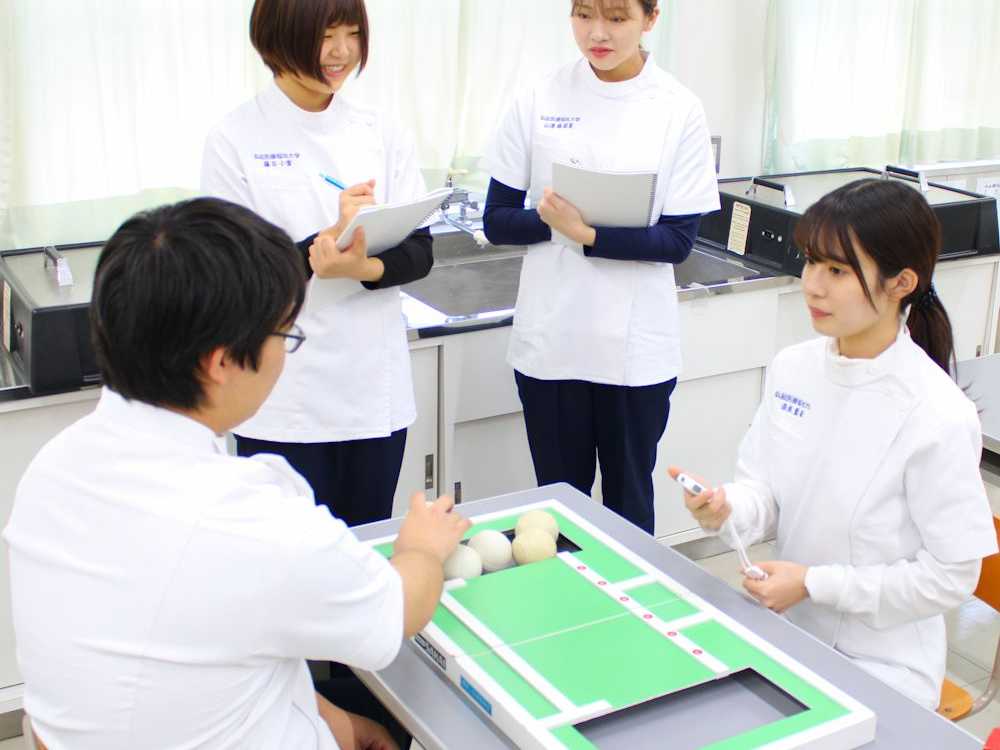
The Department of Rehabilitation Sciences – Division of Occupational Therapy aims to develop students to understand limitations caused by illness, injury, or disability and assist in improving the quality of life for patients of all ages. We also aim to develop practical skills to collaborate with various professionals to encourage patients to participate actively in their local communities.
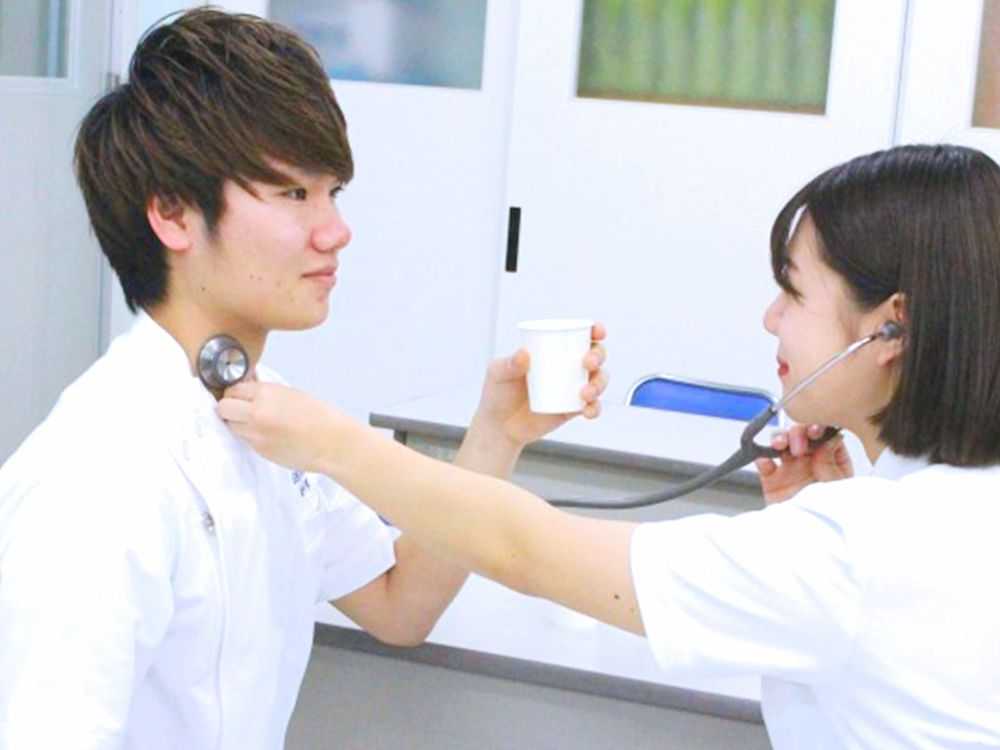
The Department of Rehabilitation Sciences – Division of Speech-Language-Hearing Therapy aims to provide those with hearing, speech, communication, and eating disabilities with high-quality professional therapists.
Moreover, the University will work with local communities to promote a safe living environment, especially for those with disabilities, and to develop SLH therapists who actively contribute to the community.
| Department | Degree | Qualification |
|---|---|---|
| Department of Nursing | Bachelor of Science (Nursing) | Nurse/Health Nurse (Qualification to take the national examinations) |
| Department of Rehabilitation Sciences Division of Occupational Therapy | Bachelor of Science (Occupational Therapy) | Occupational Therapist (Qualification to take the national examination) |
| Department of Rehabilitation Sciences Division of Speech-Language-Hearing Therapy | Bachelor of Science(Speech-Language-Hearing Therapy) | Speech-Language-Hearing Therapist (Qualification to take the national examination) |
| Grade | Department of Nursing | Department of Rehabilitation Sciences | Total |
|---|---|---|---|
| 1 | 41 | 57 | 98 |
| 2 | 41 | 58 | 99 |
| 3 | 51 | 73 | 124 |
| 4 | 50 | 77 | 127 |
| Total | 183 | 265 | 448 |
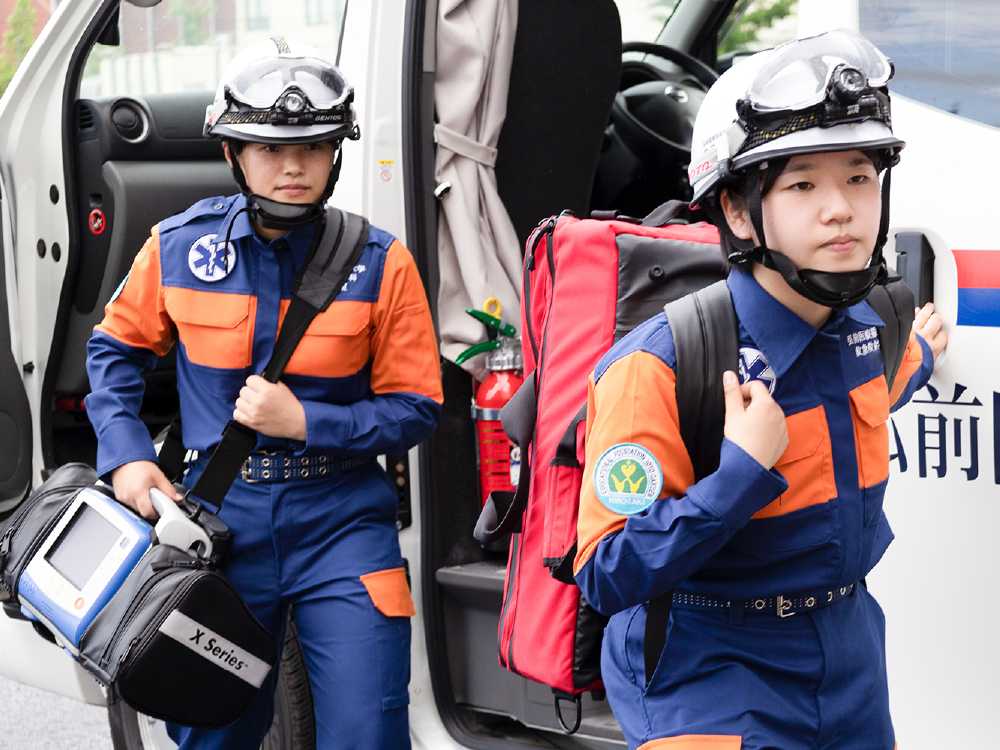
We know the significant social need for developing Emergency Life-saving Technicians as a crucial part of community support and human resources. The training of these professionals is an urgent matter in today’s society
Emergency Life-saving Technicians will provide a vital link to medical care for those injured or sick in their homes, assisted living facilities, and other non-hospital settings.
We firmly believe that lifesaving and rescue go hand in hand.
That is why we have established a special training facility, one of the few in the country, where students can acquire the knowledge and skills necessary for lifesaving and rescue efforts.
We prepare students to play an active role in disaster relief and rescue operations through practical training exercises using high-level equipment and specialized devices in this training facility.
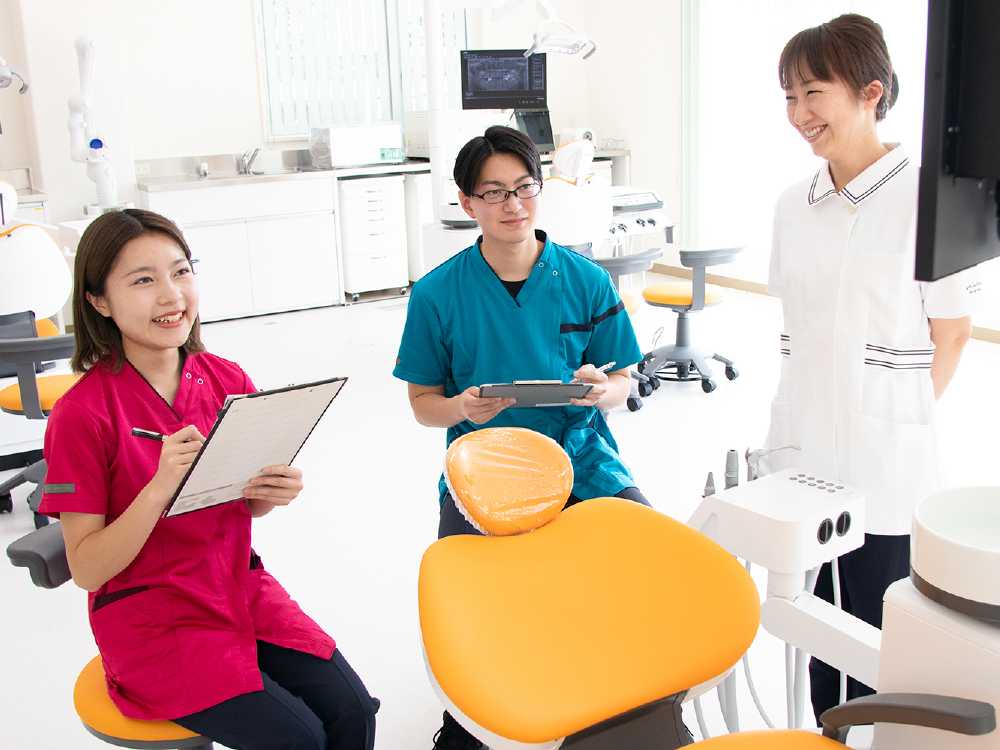
Gingivitis, closely related to the development of lifestyle-related illnesses, has garnered increasing attention, and there is a growing social demand for improving oral health through prevention.
The need to improve oral health through preventive measures is on the rise. Since good oral and gingival health is crucial for overall health, the role of specialists in oral and gingival health care is becoming more critical.
In response to this social need, and as a new contribution to the community in the era of Reiwa, we have established the Department of Oral Health Sciences to train Gingival Health specialists. Our goal is to contribute to extending healthy life expectancy in the community. We will train prospective students to collaborate with future multidisciplinary and team-based healthcare efforts.
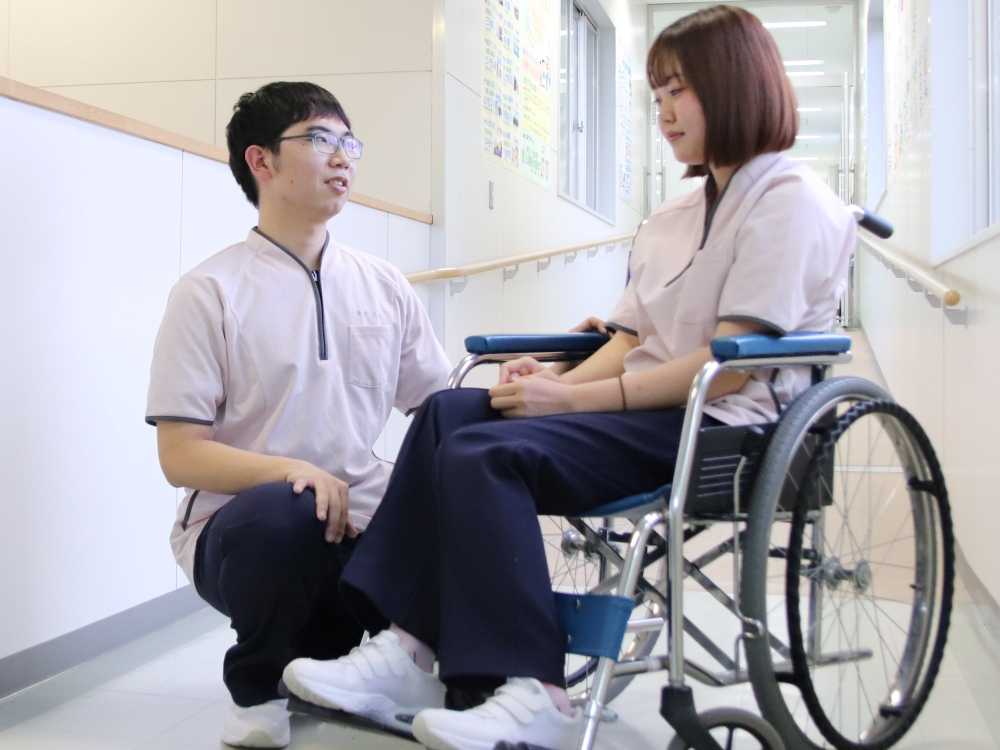
Care Work Sciences prepares students to provide care that prioritizes clients’ quality of life while respecting clients’ autonomy. The students will gain specific knowledge and skills in care and welfare, allowing them to play an active role in the community and take on leadership positions. Students will achieve this through acquiring welfare-related skills and practical knowledge gained through practical training in Care Work Sciences.
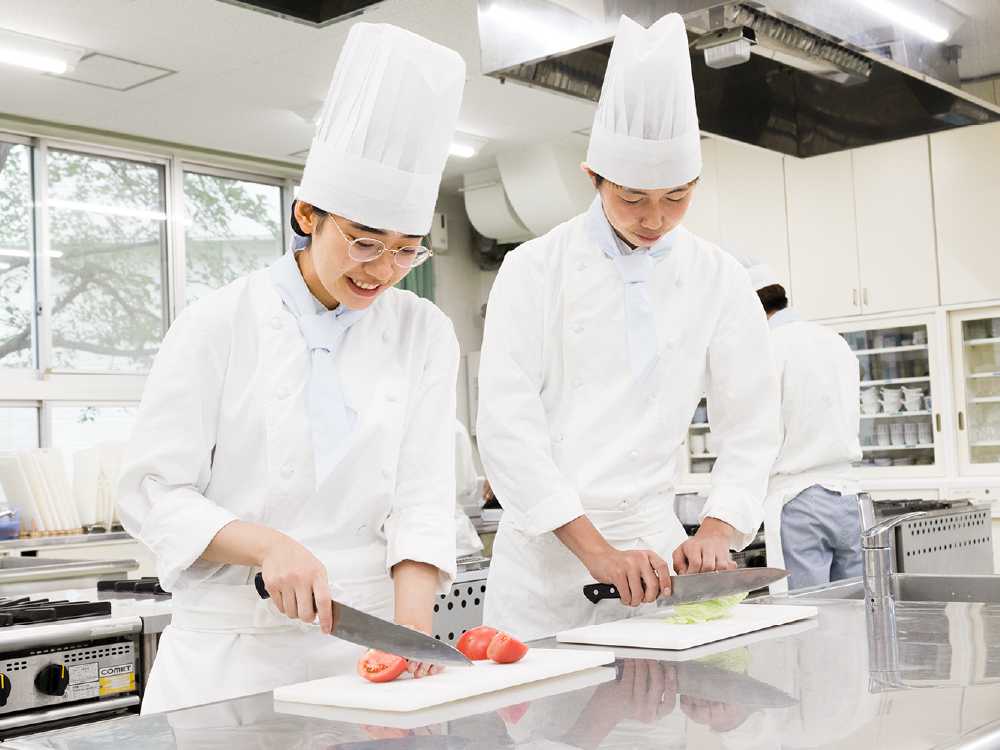
The culinary industry constantly evolves, and the demand for knowledgeable and skilled professionals is always present. Students will gain a comprehensive understanding of culinary arts by studying at a culinary school. Significant skills covered include cooking techniques, menu planning, presentation, and food safety. This knowledge and hands-on experience will enable graduates to excel in the industry, such as chefs, kitchen managers, and food service supervisors.
Moreover, the Culinary School offers a supportive and collaborative learning environment where students can exchange ideas and learn from each other. This enhances the learning experience and helps to build relationships and networking opportunities within the industry. Culinary education offers students valuable opportunities to develop their culinary skills, knowledge, and confidence. With the increasing demand for professionals in the food and beverage industry, a culinary education can open doors to a fulfilling and successful career.
| Course | Degree | Qualification |
|---|---|---|
| Department of Emergency Medical Technology | Junior College Bachelor (Emergency Life-saving) | Emergency Life-saving Technician(Qualification to take the national examination) |
| Department of Oral Hygiene | Junior College Bachelor (Oral Hygiene) | Dental Hygienist(Qualification to take the national examination) |
| Care Work Sciences (Suspension of student recruitment for 2025) | (No Junior College Bachelor) * Certificate of the Course Completion and Certificate of Curriculum Completion will be issued | Care Worker (Qualification to take the national examination) |
| Culinary (1 year program) | (No Junior College Bachelor) * Certificate of the Course Completion and Certificate of Curriculum Completion will be issued | Certified National Cook license |
| Grade | Department of Emergency Medical Technology | Department of Oral Hygiene | Total |
|---|---|---|---|
| 1 | 30 | 14 | 44 |
| 2 | 42 | 27 | 69 |
| 3 | 40 | 12 | 52 |
| Total | 112 | 53 | 166 |
| Grade | Care Work Sciences (specialized course) | Culinary (specialized course) (1 year program) | Total |
|---|---|---|---|
| 1 | 11 | 22 | 33 |
| 2 | 11 | / | 11 |
| Total | 12 | 22 | 44 |